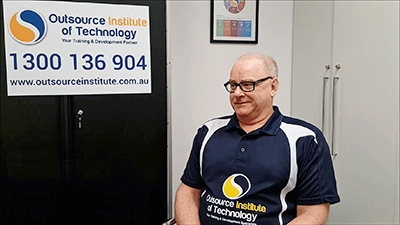A staff development strategy for the manufacturing industry
By Carl Spruce.
THE PROCESS of ‘buddying up’ experienced employees with new recruits is not a new concept, in fact the traditional apprenticeship system is predicated on an experienced tradesperson mentoring and coaching an apprentice throughout their apprenticeship period.
The challenge that most companies have is trying to ‘formalise’ the ‘informal’ nature of the knowledge being transferred within their organisations. 
Mentoring has long been used in manufacturing and engineering to transfer trade skills to apprentices throughout the four-year duration of an apprenticeship.
This process of knowledge and skills transfer is as follows:
- The first year an apprentice typically works alongside a tradesperson for a year. During this time the tradesperson will teach the young apprentice how to perform basic trade skills such as welding or cutting materials to length.
- During the second year the apprentice is then given small jobs to start and complete by themself with some guidance from a nearby tradesperson.
- Third and fourth-year apprentices start to work as part of a team of tradespeople and/or autonomously on projects.
Mentoring can be used in many ways in manufacturing and engineering to level the skill playing field of the workshop.
Many organisations allow workers to work endlessly in a very skilled environment such as CNC programing, specialised welding and detailed pressing operations without transferring these skills to others in the organisation.
The risks of allowing this to occur are: that holiday periods and sick leave impact on production and quality; abrupt departures of key workers result in a rushed or failed recruitment process and wage increases requested by key tradespeople.
The transference of critical skills reduces the risk to the organisation.
The culture of most manufacturing and engineering organisations is very ‘technocratic’ and ‘autocratic’. Skills are king and the people with the most skills are the leaders (generally).
What most manufacturing and engineering organisations don’t realise is the value and opportunities for innovation and collaboration that exist in their people. Many ideas and innovations are not shared due to low levels of trust between management and tradespeople.
Introducing a mentoring program would lead to an increased understanding and clarification of managerial and tradesperson roles within the organisation and foster a team approach to productivity, quality and safety requirements.
The main thing to realise when developing a mentoring program is to adequately support all parties involved. Ensure that everyone engaged in the mentoring relationship understands their roles and responsibilities and is explicitly aware of the purpose of the mentoring relationship and its intended outcomes.
* Outsource Institute has developed a training unit to assist in this area.’TAEDEL404- Mentor in the workplace’ is an accredited unit of competency providing participants with the required skills and knowledge necessary to establish and develop a professional mentoring relationship with an individual in a workplace.
Carl Spruce is the managing director of the Outsource Institute of Technology, a Manufacturing Toolbox partner and sponsor, regularly providing information like this to industry through the platform.
ends

 How to resolve AdBlock issue?
How to resolve AdBlock issue?